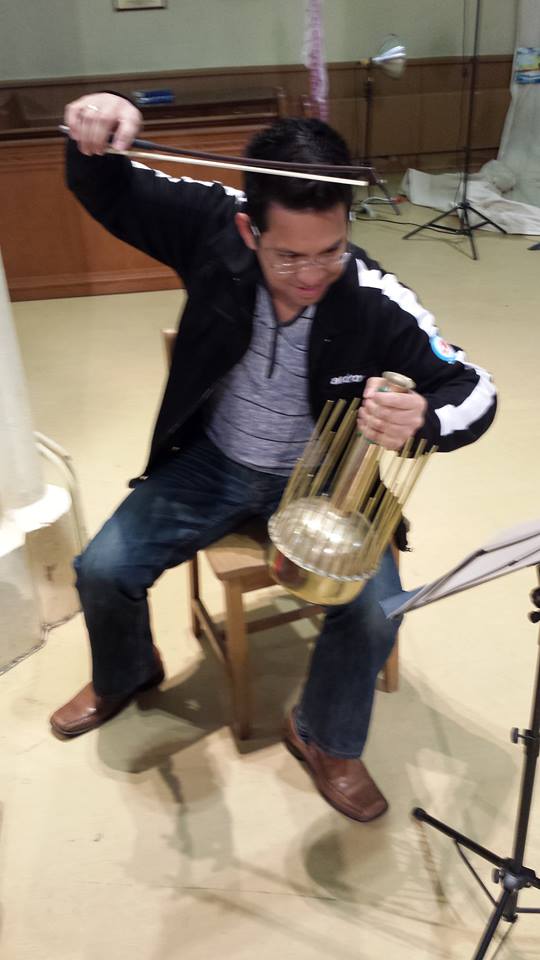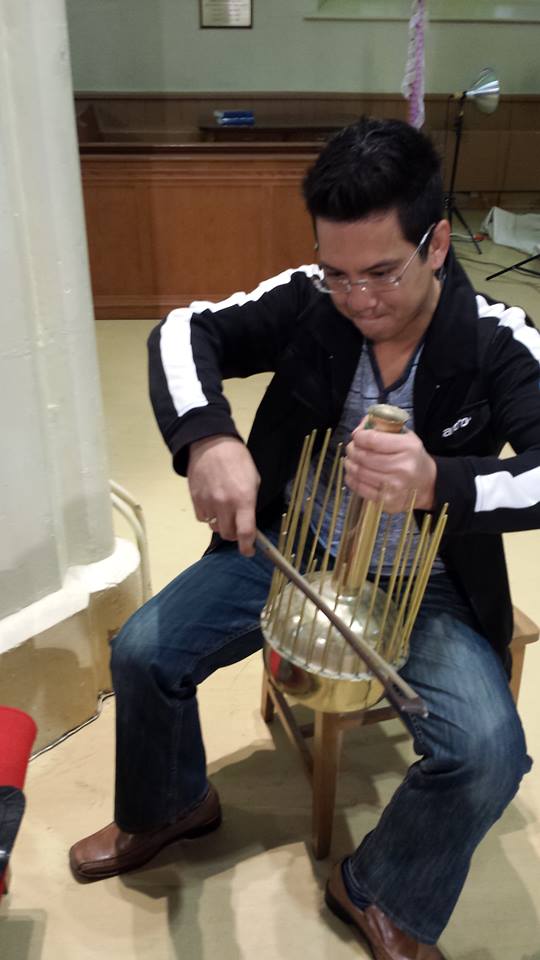Composing a piece of music is much more effort than a lot of people give credit for, but it’s extremely rewarding. HPO Composer-in-Residence, Abigail Richard-Schulte knows this. Her most recent piece, Roaming Dances, premieres in tonights Alter Egos concert for the 2015 What Next Festival of New Music. Curious about what goes into composing new works? We asked Abigail about the inspiration for her new piece and learned more about the process of creating contemporary music.
What inspired you to compose Roaming Dances?
I always love to have an outside concept or occasion to accompany a new piece. In writing a new piece for the Alter Egos concert in our What Next Festival, I really wanted to feature some unusual sounds but also write for our HPO musicians specifically. At the opening of Dan Banko’s exhibition at the Nathaniel Hughson Gallery featuring our HPO musicians, I spoke to Stephen Pierre (Principal Clarinet at the HPO for 30 years!) about the new piece. He told me he’s always wanted to have a suite of dances written for E-flat clarinet (which is higher than the normal B-flat clarinet) and bass clarinet. I was so pleased to be able to say “I can do that!” From there, I started looking at some other players on the same concert. I knew that our Principal Bass player Rob Wolanski would be playing electric bass and that our Principal Trumpet player Michael Fedyshyn also plays piccolo trumpet. I could hire a pianist who owns a harpsichord and add a few more toys like wine glasses, ping pong balls (to drop in the piano) and waterphone to be played by the violinist (who will already have a bow in his hand). That’s how I ended up with this unusual collection of instruments. It really felt like a good fit with the theme of our festival which features unusual instruments, techniques, combinations and second and third instruments of our principal players.
Now in stating “a suite of dances”, Steve Pierre was referring to old fashioned baroque dances which have been a source of inspiration for composers for hundreds of years. I wanted to honor the old but at the same time, explore the new. I decided on four movements each with a different dance in mind. I start out with two duet movements. The first is a Courante, or running dance, for trumpet and trombone with the direction: “Run as fast as you dare”. It really plays around with the old fashioned “hocket” which shares the melody between two instruments. Then, I wrote a little march that wanted to break free of its march shackles, called Discontented March, for bass clarinet and violin. Both of these short duets are challenging and meant to highlight the virtuosity of our HPO players.
The third movement brings in the whole ensemble for the first time, in an unusual sound world movement entitled Deep Water Dance. Musical gestures fade in and out of focus around an unusual backdrop of plucked strings from inside the piano and ping pong balls dropped and rolled on its strings, along with wine glasses and waterphone. Eventually, a gentle dance emerges from within this unusual place.
The last movement highlights the old versus new nature of this piece, and is entitled What’s Old is New Again. I divide the instruments into an old group: piano/harpsichord, violin, clarinet, versus new group: trumpet, trombone and electric bass guitar. The movement starts baroque and evolves into an almost hip lounge style by the end. I didn’t intend for it to end up where it did, but the instrumentation just led me there. I’m going to blame it on the electric bass…
Are there any other works that come to mind, similar to Roaming Dances?
Composers throughout time have written collections of dance suites. These are perhaps a little unusual in terms of instrumentation and that I let them “roam”. They only start off according to what they “should” be, but soon start to explore their surroundings. I didn’t have a model for these but I certainly wouldn’t say it hasn’t been done before. I think by this point, everything has been done by somebody.
Can you briefly describe your process of composing new work?
As always, I sit at my piano and create the music. I play and sing, and try to layer as much of the music as I can. Of course with six instruments, I can’t get everything happening at once but I can play something and keep it going in my head while I move onto something else to layer over top. I then transfer the music to my computer and write everything out for each instrument individually. This process works well for me, especially with larger orchestral pieces. I am completely dependent on the piano for writing my “black and white” sketch if you will, but I also enjoy the process of turning it to colour during the orchestrating phase. The computer is helpful for this phase but I don’t rely on it that much. It is really essential, however, for creating a polished looking score and parts.
How long did it take to create Roaming Dances?
A few weeks of thinking, several months to write the music, and a few weeks for notating/creating parts and editing.
Was there anything particularly challenging while creating this commission for the What Next Festival?
Absolutely. I’ve never written for electric bass guitar before, and I expected it to be challenging to integrate it into a fairly traditional ensemble of piano, violin, and clarinet, plus the tricky to balance trumpet and trombone. The benefit of being a composer in residence is that I can ask for help. ob Wolanski invited me over to his house and demonstrated some playing techniques as well as explaining the subtle differences between the contrabass (an instrument I know well) and the electric bass. It gave me the starting point I needed.
What are some of the interesting features in Roaming Dances that we should look out for?
Come and hear ping pong balls rolling inside the piano plus the extremely creepy waterphone! Lance Oullette, our Associate Concertmaster was really excited to play it.
Looking for more contemporary music? Tonight, come out to the Gasworks at 141 Park St. N. for our FREE Alter Egos concert as HPO musicians break out of the box and show us what else they can play. This evocative program features guitar, basset horn and electric bass, along with HPO musicians on the violin, trumpet and trombone. Also hear two world premieres of new work from Hamilton composers Christien Ledroit and our own Composer-in-Residence Abigail Richardson-Schulte.

